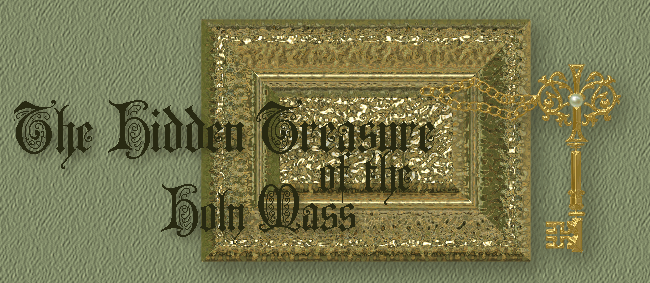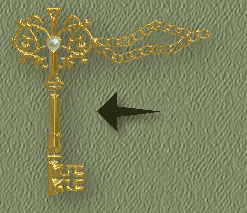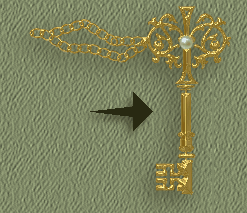
by St. Leonard-Port Maurice
Nihil Obstat and Imprimatur, 1890
TAN BOOKS
In the world you will have affliction. But take courage,
I have overcome the world.
------- JOHN 16:33

 Chapter 3: ON HEARING MASS DAILY, PART 5: FOR LABORERS The Apostle St. Paul says that he who does not duly provide for and take care of his family is worse than an infidel. Si quis suorum, et maxime domesticorum curam non habet, fidem negavit, et est infideli deterior (1 Tim. v. 8). This is to be understood, not only of their bodies, but much rather of their souls; so that if it would be a great impiety to leave one's household in want of corporal food, a much greater depth of unfaithfulness must it be to deprive them of spiritual aliment, and, especially, of the utmost facility for daily hearing holy Mass-----the loss of which can never be compensated by any master, however rich and powerful he may be. When God established with Abraham the great covenant, He commanded that not he alone should be circumcised, but also all his servants and all his slaves, Tam vernaculus, quam emptitius circumcidetur (Gen. xvii. 12), an evident sign that the good Christian ought not to be content with going by himself to Divine worship, and specially to holy Mass, but ought to take pains to induce all his servants, and all portions of his family, to give themselves to the worship of God. This hallowed household rule was practised in all its propriety and gracefulness by St. Elzear, Count of Ariano, who, among many good regulations which he gave to his family, made this the first, that all in his employ should every morning hear holy Mass. Men-servants, women-servants, pages, grooms: he made a point of seeing them all at Mass-----a most holy custom, and one practised, thank God, by many men of rank, and by all the ecclesiastical dignitaries of Rome. These every morning hear holy Mass, and make all their retinue and servants assist also. Nor ought any one to fancy that this amount of time occupied by your servant in hearing holy Mass is time lost. Well shall it be recompensed by God. St. Isidore was a poor farm-laborer, but one who never missed hearing holy Mass every morning; and Almighty God, in order to show him how pleased He was with his devotion, once when he was assisting at Mass, caused his field to be ploughed for him by the concealed service of angels. It is true that God may not work such striking miracles for you, but in how many other ways may He not repay your piety? You may draw your own conclusions from that which I believe to have happened to a poor working-man. He was a vine-dresser, who maintained his family by the sweat of his brow. Every day, before going to his work, he was in the habit of being present at the holy sacrifice of the Mass. One morning having gone betimes to the spot appointed for day-laborers seeking hire, he stood waiting for some proprietor to select and conduct him to his day's work. At length hearing the sound of the bell, he betook himself, according to his custom, to church, there to offer his prayers. That Mass ended, there then commenced a second; and, stimulated by his devotion, he heard this other Mass also. When he returned to the accustomed place, he found it solitary, every one being already hired by various proprietors in the neighborhood; so the good man, much cast down, returned toward his house; but in the way encountered a wealthy citizen, who, struck with the clouds of grief on his brow, asked whence arose his sorrow. "What would you have?" said the poor fellow. "This morning, in order not to lose Mass, I have lost my day's hire." "Give yourself no trouble about that," said the rich citizen, "go to church, hear another Mass for my intention, and this evening I will pay you a day's hire." The poor man went and heard all the Masses celebrated that day, and in the evening went to receive his wage, which consisted of twelve soldi, the usual pay of day-laborers in that district. He was going contentedly home, when he met an unknown personage (as I conceive, the Saviour of the world Himself) who asked what reward he had obtained for a day so well employed. And on hearing the reply, He said, "What! so little for work so meritorious? Go back to the rich man, and tell him that if he do not increase the gift, his affairs shall all go wrong." This simple soul took the message to the citizen, who gave him five pieces more and bade him go in peace. The poor man was quite satisfied with his increase, but Jesus was not satisfied! "Return," said the unknown counsellor, "return to the niggardly man, and tell him that if he do not increase your reward, he may look for a dreadful disaster." Again he went with a demeanor of timid respect, and with hesitating utterance and low voice, delivered his message. Then the rich man, deeply struck, and moved interiorly by God, went so far as to give him a hundred soldi, with some clothing quite good and new. (Nicol. Lag. tract. 6, d. 10, de Mis. G. 100.) No doubt you admire with reason Divine Providence thus interposing in behalf of this poor vine-dresser, because of the pious devotion with which he had always assisted at the holy sacrifice. But much more worthy of admiration is the favor which the Sovereign Mercy thus contrived to exercise toward the rich man; for the following night the Saviour appeared to him in sleep, and related to him that, through the Masses heard for him by his poor neighbor, He had remitted the sudden death which had been destined that very night to plunge him into Hell. At this terrific announcement, he awoke, and full of horror for his evil ways, he became most devout toward holy Mass, at which he continued to assist every morning, and caused also many to be celebrated every day in different churches, till at last, after a virtuous life, he ended his days by a happy death. See now how gracious is God's bounty toward those who prove devout lovers of the holy sacrifice of Mass. Ah, hasten then, my poor friends, hasten to Mass, and be very sure that by this one exercise of devotion you shall find consolation amid all your trials. BACK TO THE TOP OF THE PAGE |

 Contact
Us
Contact
Us

HOME-------------BLESSED SACRAMENT VISITS
www.catholictradition.org/Eucharist/hidden-treasure3e.htm